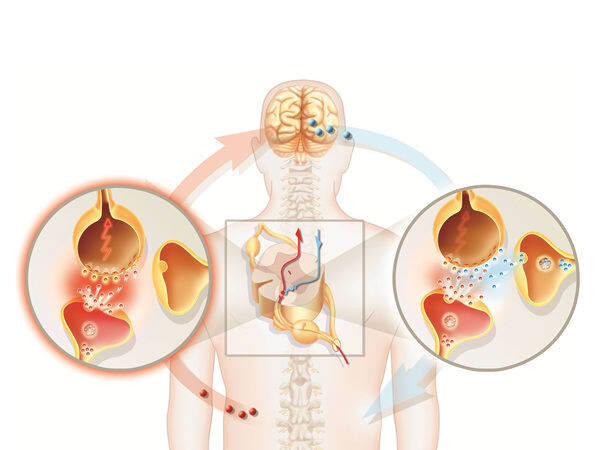How do Gabapin benefit in Neuropathic pain & Epilepsy?
Body
Gabapin 300 mg capsules are popular remedies for relieving neuropathic pain and epilepsy/seizures. This medicine is also known for its active ingredient – Gabapentin.
It belongs to the anticonvulsant class of drugs primarily prescribed for managing and preventing neuropathic pain. It is amazingly effective for epilepsy or seizures. Your doctor may prescribe it for treating migraine headaches too.
Before we check out the benefits & more on Gabapin 300, let’s have a quick overview of the major health issues this medicine treats.
About Neuropathic pain & Epilepsy
Neuropathic pain is referred to as a progressive chronic condition. The damage/injury to the neurotransmitters between the brain and the spinal cord via skin and muscles trigger pain. This pain feels like a shooting or burning sensation. The affected areas become more sensitive when touched.
Epilepsy is a CNS disorder. Also known as a neurological disorder, epilepsy turns brain activities abnormal and leads to seizures. The patient experiences unusual behaviors, feelings & even loses awareness at times. People having epilepsy/seizures feel the burst of pain in the brain, which further transmits to the muscles. As a result, convulsions and twitches occur.
The Healing Power of Gabapin
Gabapin 300 belongs to anticonvulsants or antiepileptic class of drugs, but the exact mechanism of action of Gabapin 300 is unknown. It works by blocking the pain sensations between the damaged nerves and the brain.
As a result, the chronic pain numbs because of neuropathy or epilepsy subsides until the next scheduled dosage. When this medicine is continuously dosed for the prescribed duration, it will make the patient feel relief from nerve pain.
Uses of Gabapin 300
Here are some major uses of Gabapin 300 where it is incredibly effective:
- Neuropathic pain
- Epilepsy/Seizures
- Migraine Headaches
- Restless Leg Syndrome
- Nerve pain caused by shingles
- Several types of nerve pain
Benefits of Gabapin 300 mg tablets
- Gabapin 300 mg is best for treating long-term chronic nerve pain.
- Taking Gabapin for Neuropathic pain will improve the overall quality of life for the patients. The painful nerve signals are halted and the physical and social functioning of the patient is normalized.
- Gabapin 300 works no less than a mood booster for neuropathic pain patients because the pain signals are minimized.
- For epilepsy/seizures, Gabapin 300mg helps to minimize symptoms like confusion, anxiety, jerky movements, etc. This helps in restoring confidence among patients to carry out routine activities smoothly.
How to use Gabapin 300 for Neuropathic pain & Epilepsy/Seizures?
Gabapin 300 is available in different dosage variants (tablets, capsules & liquid). Take the respective dosage as prescribed by your doctor. How you use Gabapin 300 mg depends on its form of intake as well as the disease it will be treating.
Don’t alter the dosage based on assumptions else it will impact the effectiveness & you won’t feel the pain relief as expected. Also, consider consulting your doctor at frequent intervals. Tracking the progress is important instead of continuing the medicine for a longer time. So, you now know how to take your dosage.
Overdose
Increasing Gabapin 300 mg per dosage will not make it effective faster, but increases the chances of side effects. In case if you’ve overdosed, call your doctor & seek medical help before it is too late.
Missed/Skipped Dose
Your doctor will mostly schedule Gabapin 300 dosages based on the health issue to be treated. The idea is to maintain the effectiveness levels of Gabapentin in your body.
If you skip or forget to use Gabapin more frequently, you won’t be feeling expected levels of relief. You may continue with the next scheduled dosage if you miss the dosage sometimes. Don’t you ever take multiple tablets as your next scheduled dose! After that, some severe negative impacts may strike your health.
Do any side effects happen while using Gabapin 300?
We’ve seen the benefits of medicine by far. Let’s have a look at some nominal side effects it may bring to the patients:
- Nausea
- Vomiting
- Dizziness
- Drowsiness
- Swelling in arms & limbs
- Walking troubles
- Chest pain
- Back pain
- Body pain
- Constipation
- Diarrhea
- Vision changes
- Weight gain
- Mood swings
- Fever
- Chills
- Fatigue
- Cough
- Dry mouth
- Forgetfulness
- Breathing troubles
- Sore throat
- Urinary tract problems
- Anxiety
- Depression
These side effects will not bother your health unless they’re getting worse with time. You may have to visit your doctor for guidance in case if they’re taking longer than usual to heal.
What precautions to keep when taking Gabapin 300mg?
- Prescription is necessary to take Gabapin 300. So, don’t ignore it & consult the doctor before starting to use this medicine.
- Gabapin 300 has the common side effect of causing drowsiness after its usage. Hence, avoid driving, using heavy machinery, etc after taking the medicine.
- Alcoholic beverages, caffeine, tea, cola, etc should be avoided or their consumption should be limited while you’re using Gabapin 300. Take this as a precautionary measure to prevent extreme dizziness.
- Discuss every important information regarding your health, medical history, medicines, surgeries, etc while visiting the doctor so that they can figure out if you can use Gabapin 300 or not.
Some Important Information to take note of!
Storing Gabapin 300
- Store Gabapin 300 in a cool and dry place. Don’t place it under direct heat or sunlight.
- Keep it away from children’s reach.
Drug Interactions
Many OTC medications, prescription drugs & herbal supplements are not suitable in combination with Gabapin. You have to take care that these drugs are not used along with Gabapin 300. If you cannot stop their intake for the duration you’ll be using Gabapin, then seek guidance from your doctor on keeping a safe gap between these drugs.
Meanwhile, let’s have a look at the conflicting medications with Gabapin 300 mg:
- Antimalarial drugs (such as mefloquine)
- Anti-seizure medicine (such as phenytoin)
- Antidepressants
- Anti-anxiety medicines
- Antihistamine drugs
- Muscle relaxants
- Drowsiness-promoting pills
- Pain killers
- Opioid pain relievers
Health-condition Interactions
Not only have you had to care about conflicting drugs, but also about the health conditions that may worsen up by using Gabapin 300. Patients seeking treatment with Gabapin 300mg should be careful & cautious to discuss with the doctor if they already have:
- Diabetes
- Seizures
- Mental health disorders
- Trouble in breathing
- Cardiovascular problems
- Kidney or liver disease
- Drug and alcohol abuse problems
Pregnancy & Nursing
Gabapin 300 is mostly not recommended for pregnant and nursing women. The reason is the chances of excessive bleeding during delivery. Also, the possibility prevails for Gabapentin to pass to the child via breast milk.
Final Thoughts
You’re now aware of the details to discuss with the doctor with all the essential information by your side. We recommend you to take this blog as a brief guide about Gabapin 300mg which’ll help you to know the medicine better. In conclusion, please buy it only after consulting your doctor.











Comments